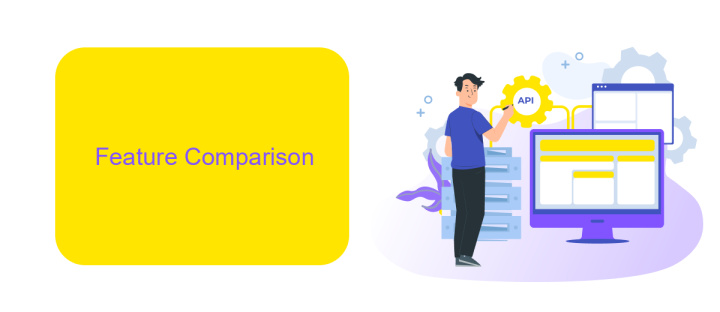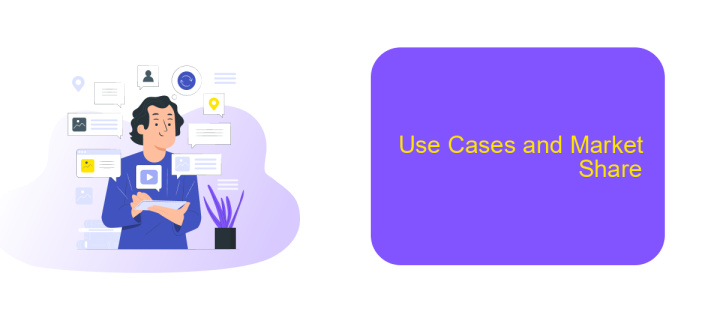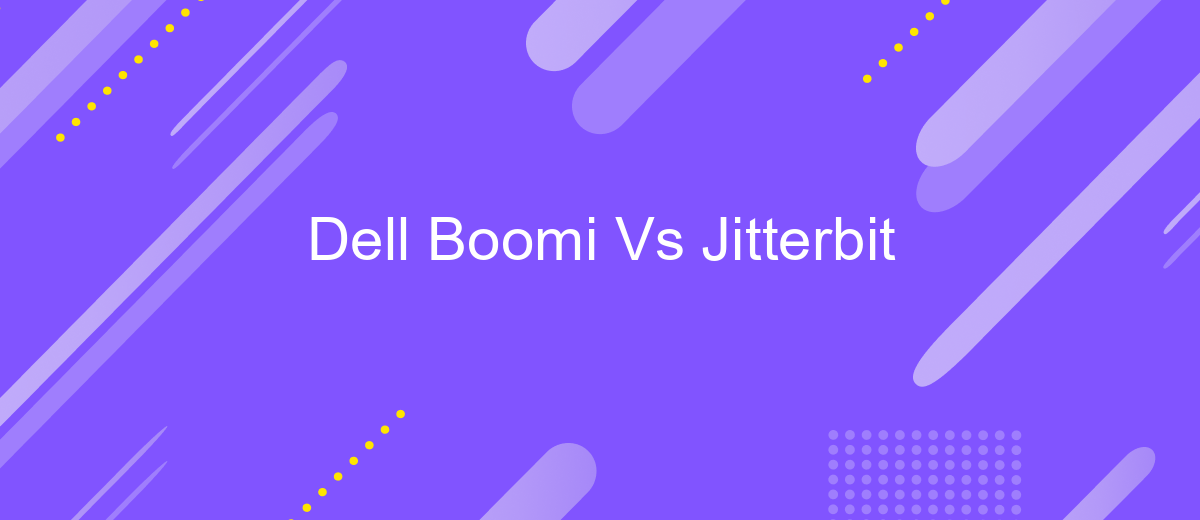Dell Boomi Vs Jitterbit
When it comes to integration platforms, Dell Boomi and Jitterbit are two of the most prominent names in the industry. Both offer robust solutions for connecting applications, data, and processes, but how do they stack up against each other? This article delves into the key features, advantages, and potential drawbacks of Dell Boomi and Jitterbit to help you make an informed decision.
Introduction
In today's fast-paced business environment, integration platforms play a crucial role in streamlining operations and enhancing productivity. Dell Boomi and Jitterbit are two prominent players in this field, offering robust solutions for connecting applications, data, and processes. Both platforms aim to simplify complex integrations and provide seamless connectivity across various systems.
- Dell Boomi: Known for its cloud-native architecture and user-friendly interface, Dell Boomi offers a comprehensive suite of tools for data integration, API management, and workflow automation.
- Jitterbit: Jitterbit excels in delivering powerful integration capabilities with a focus on speed and flexibility, enabling businesses to quickly connect disparate systems and automate processes.
While both Dell Boomi and Jitterbit offer valuable features, choosing the right platform depends on specific business needs and integration requirements. Additionally, tools like ApiX-Drive can further enhance integration efforts by providing easy-to-use solutions for connecting various applications and automating workflows. Understanding the strengths and limitations of each platform is essential for making an informed decision that aligns with your organization's goals.
Feature Comparison

When comparing Dell Boomi and Jitterbit, it's essential to consider their integration capabilities. Dell Boomi offers a comprehensive suite of tools that facilitate seamless integration across various platforms and applications. It provides a user-friendly interface with drag-and-drop functionality, making it accessible even for those without extensive technical expertise. Additionally, Dell Boomi's AtomSphere platform ensures reliable data synchronization and real-time updates, enhancing operational efficiency.
On the other hand, Jitterbit excels in providing robust API management and integration solutions. It offers powerful data transformation capabilities and supports a wide range of protocols and formats. Jitterbit’s intuitive design and automation features simplify complex integration processes. For users seeking an alternative or complementary solution, ApiX-Drive can be a valuable addition. ApiX-Drive specializes in automating integrations between various services and applications, ensuring smooth data flow and reducing manual intervention. This can be particularly useful for businesses looking to streamline their operations without investing heavily in custom development.
Pricing and Licensing

When considering the cost and licensing of Dell Boomi and Jitterbit, it’s essential to understand the pricing models and what each platform offers. Both platforms provide scalable solutions tailored to various business needs, but their pricing structures differ.
- Dell Boomi: Dell Boomi operates on a subscription-based model with tiered pricing. The cost varies based on the number of integrations, data volume, and additional features like API management and real-time integration.
- Jitterbit: Jitterbit also uses a subscription-based model, but it focuses on the complexity of integrations and the number of endpoints. Pricing tiers include Standard, Professional, and Enterprise, each offering different levels of support and functionality.
Both platforms offer free trials, allowing businesses to evaluate their capabilities before committing. Additionally, for businesses looking for a more straightforward integration setup, services like ApiX-Drive can be a cost-effective alternative. ApiX-Drive offers affordable pricing plans and an easy-to-use interface, making it an excellent choice for small to medium-sized enterprises looking to streamline their integration processes.
Use Cases and Market Share

Dell Boomi and Jitterbit are both prominent players in the integration platform as a service (iPaaS) market, catering to businesses of various sizes. Dell Boomi is widely recognized for its ease of use, scalability, and extensive pre-built connectors, making it a preferred choice for enterprises looking to streamline complex integrations. Jitterbit, on the other hand, is known for its robust data transformation capabilities and user-friendly interface, appealing to organizations that require rapid deployment and flexibility.
Both platforms are used across diverse industries, including finance, healthcare, retail, and manufacturing. Dell Boomi excels in scenarios where comprehensive integration and data management are crucial, while Jitterbit is often favored for projects that demand quick setup and high adaptability.
- Dell Boomi: Ideal for large-scale enterprises needing extensive integration and data governance.
- Jitterbit: Suitable for mid-sized businesses seeking fast implementation and ease of use.
- ApiX-Drive: Effective for automating integrations without extensive technical knowledge, bridging multiple applications seamlessly.
In terms of market share, Dell Boomi holds a significant lead owing to its established reputation and comprehensive feature set. Jitterbit, though smaller, continues to grow steadily, attracting businesses with its agility and cost-effectiveness. ApiX-Drive also plays a crucial role in the market by offering a user-friendly solution for businesses looking to automate their integrations efficiently.
Conclusion
When comparing Dell Boomi and Jitterbit, it becomes clear that both platforms offer robust solutions for integration needs. Dell Boomi excels with its extensive pre-built connectors and user-friendly interface, making it an ideal choice for businesses looking for a comprehensive and scalable integration platform. On the other hand, Jitterbit stands out with its powerful data transformation capabilities and ease of use, particularly for organizations that require complex data manipulations and rapid deployment.
Ultimately, the choice between Dell Boomi and Jitterbit depends on your specific business requirements and integration goals. For those seeking an additional layer of flexibility and ease in managing integrations, services like ApiX-Drive can be a valuable asset. ApiX-Drive simplifies the process of connecting various applications and automating workflows, providing a seamless experience that can complement either platform. Carefully evaluating your needs and considering the strengths of each solution will help you make the best decision for your integration strategy.


FAQ
What are the key differences between Dell Boomi and Jitterbit?
Which platform is easier to use for non-technical users?
How do Dell Boomi and Jitterbit handle API management?
What are the costs associated with Dell Boomi and Jitterbit?
Can I integrate third-party applications with Dell Boomi and Jitterbit easily?
Apix-Drive will help optimize business processes, save you from a lot of routine tasks and unnecessary costs for automation, attracting additional specialists. Try setting up a free test connection with ApiX-Drive and see for yourself. Now you have to think about where to invest the freed time and money!

